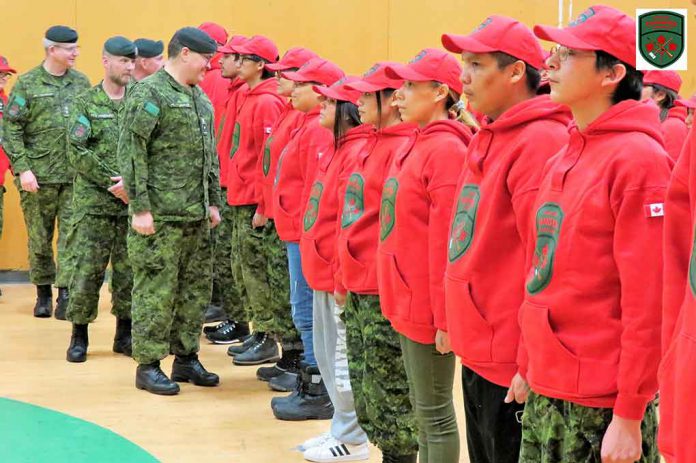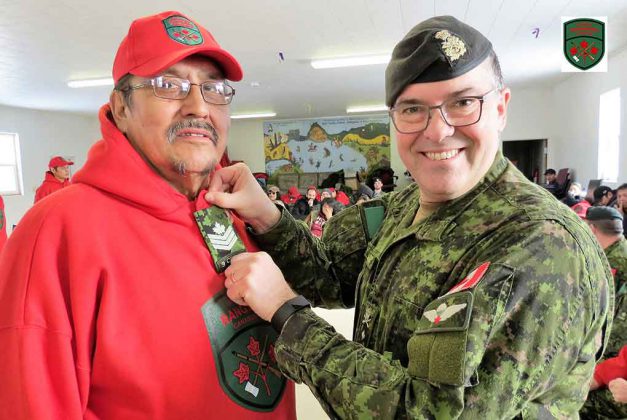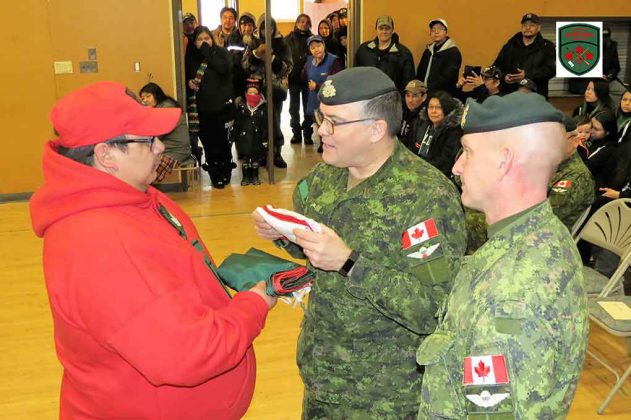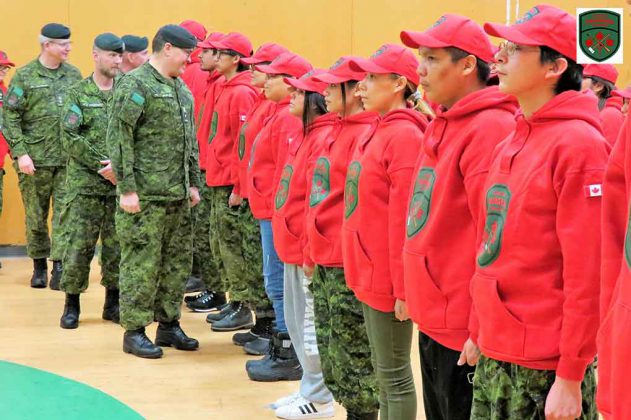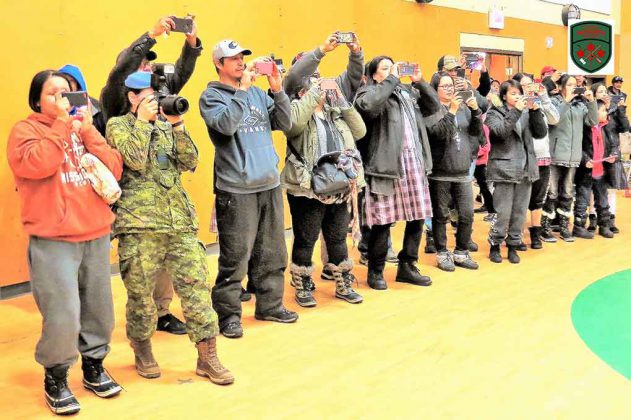By Peter Moon
THUNDER BAY – The Canadian Rangers have expanded their presence in the Far North of Ontario with the addition of new patrols in Cat Lake and Pikangikum First Nations.
“It’s a big step forward for the Rangers,” said Lieutenant-Colonel Matthew Richardson, commanding officer of the 3rd Canadian Ranger Patrol Group, which now commands 630 Rangers in 27 remote and isolated First Nation communities.
“It allows us to provide Ranger capabilities for emergency response into areas where we didn’t have them before,” he said. “We can now extend our ability to respond for search and rescue, forest fires, evacuations, and other emergencies. The Rangers are an indispensable community asset in the North.”
Graduation parades were held after the new Rangers, who are part-time army reservists, completed basic training in the two Ojibway communities. The training was conducted by Canadian Army instructors and experienced Rangers from other First Nations in Northern Ontario.
Cat Lake, with a population of 500 and located 415 kilometres north of Thunder Bay, graduated 18 new Rangers. Pikangikum, with a population of more than 3,000 and located 500 kilometres north of Thunder Bay, graduated 34 new Rangers.
The reviewing officer at the parades was Brigadier-General Jocelyn Paul, commander of 4th Canadian Division, which commands the army in Ontario. A member of the Huron-Wendat First Nation in Quebec, he is the highest ranking Indigenous member of the Canadian Armed Forces. He said it was the first time he has seen so many newly graduated Indigenous members of the Canadian Army.
He was impressed by the number of elders, relatives, friends, and members of the local leadership who attended the graduations. ‘I really enjoyed seeing the local support,” he said. “You could see the pride in their eyes.”
The patrols are commanded by two newly appointed sergeants, who were elected by their fellow Rangers and supported by their chiefs and councils. They are Sergeant Charles Wesley, an experienced hunter, in Cat Lake, and Buster Kurahahara, a former band councillor, in Pikangikum. “They are natural local leaders,” General Paul said. “They are now endowed with a lot of local responsibility. I have the feeling they are assuming their roles with a lot of pride.”
He was impressed by how many of the new Rangers were female. In Cat Lake 12 of the 18 new Rangers were women. In Pikangikum almost half were female. Female Rangers account for almost half of the Rangers in Ontario. “I think the senior leadership of the Canadian Armed Forces would be extremely pleased to see that we basically had parity in the two groups of new Rangers,” General Paul said. “You could see their pride”.
“I am impressed by the Rangers of Northern Ontario. They are a significant part of the Canadian Armed Forces. They have a special place in my heart.”
The newly elected and first female chief of Pikangikum, Amanda Sainnawap, was sworn in as a Ranger. She said the Rangers will be a big asset for her community and looks forward to the establishment of the Junior Canadian Ranger program.
Chief Matthew Keewaykapow was out of the community when the local graduation in Cat Lake took place. He sent the parade a message that said: “I am proud of all the graduates. We’ve been working on getting the Rangers up to Cat Lake for a long while now. It’s nice to see our members in uniform. We’re very proud of them.”

